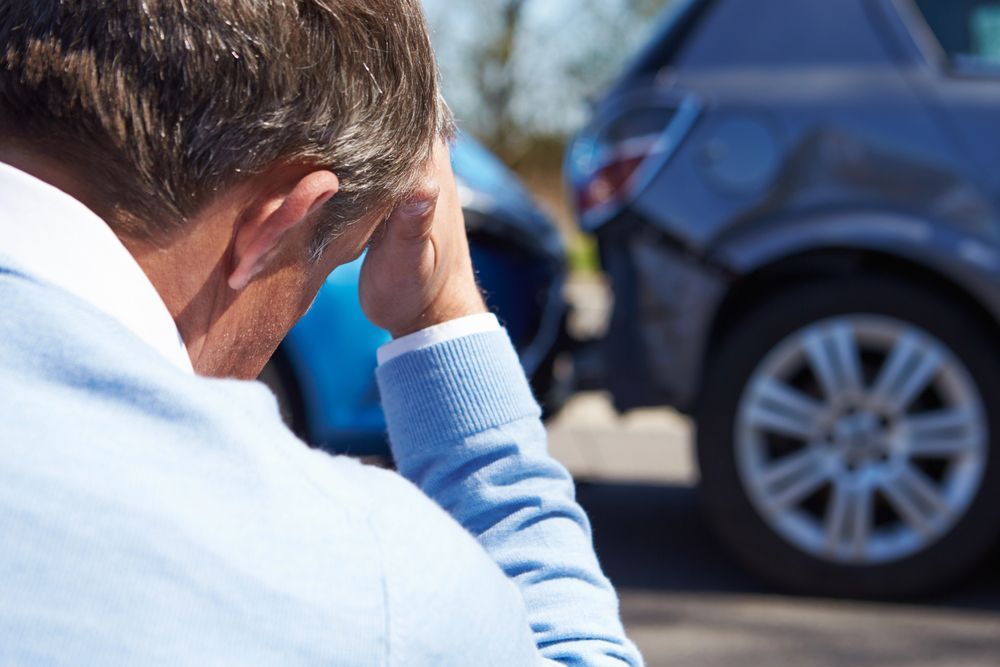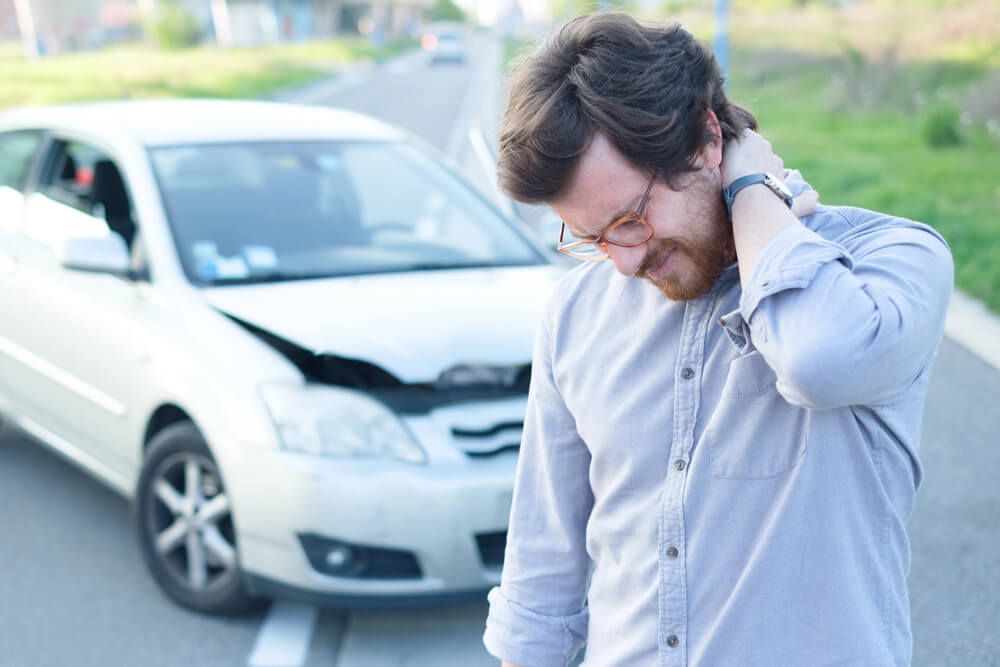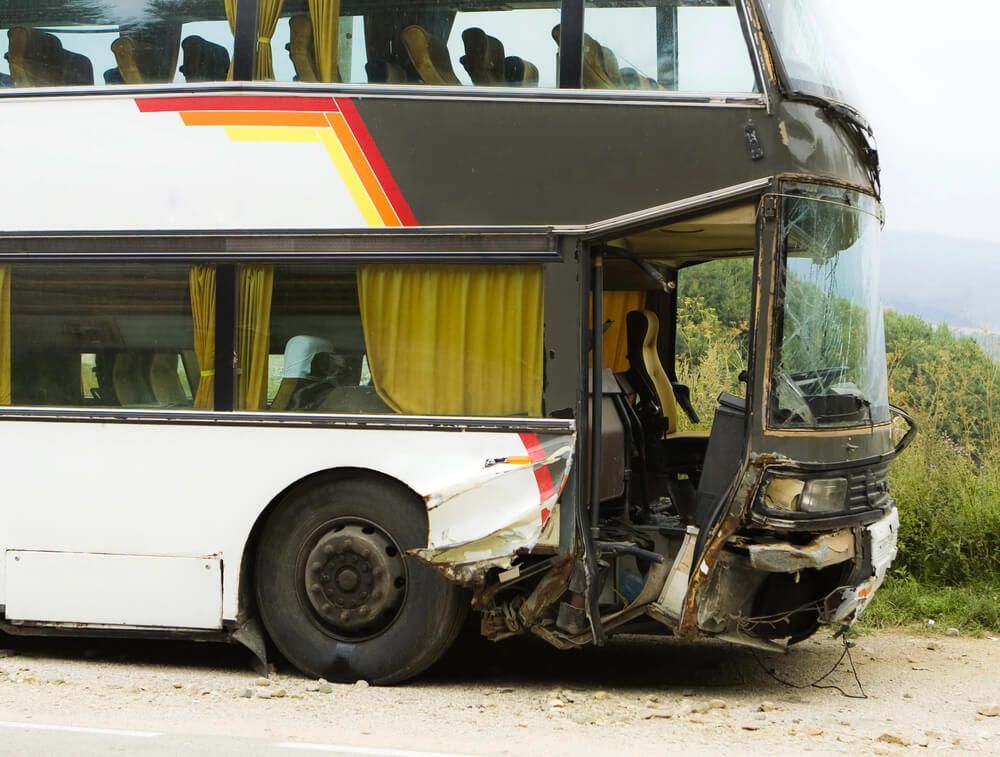What To Do After a Car Accident That Is Not Your Fault
Recent Blog Posts
What To Do After a Car Accident That Is Not Your Fault

Being involved in a car accident that isn’t your fault can be a frightening and overwhelming experience. Whether it’s a minor fender bender or a more serious collision, many people feel uncertain about what to do next. You might worry about your safety, how to handle the other driver and especially how to ensure you receive the compensation you deserve. These feelings are completely normal, but knowing the right steps to take can help you document your case effectively.
Crashes can happen unexpectedly, and the moments immediately following a car accident are often chaotic. It’s common to feel a rush of confusing and overwhelming emotions. However, taking a calm and methodical approach after an accident can make a significant difference in the outcome, especially when the accident was not your fault. Learn everything you need to know about what to do after a car accident that's not your fault, from the necessary steps immediately after the crash, through handling insurance claims, to understanding when to seek legal help.
What Does Fault Mean in a Car Accident?
It’s important to understand what “fault” means in the context of a car accident. Fault refers to the party responsible for causing the accident. This could be due to distracted driving, reckless behavior, failure to obey traffic laws or any negligent action that leads to the collision.
Fault is not always immediately obvious after a crash and determining who is responsible can sometimes be complicated. For example, the other driver might have run a red light, but if you were speeding, your own actions could also play a role. However, in cases where the other driver clearly violated traffic rules, fault generally lies with them.
If the accident was caused by another driver’s careless or dangerous conduct, then the accident is considered not your fault. This means the other driver, and potentially their insurance company, is responsible for covering your damages, including medical bills and car repairs. Establishing fault is essential because it determines whose insurance will pay for damages and who might be held legally accountable.
It’s also worth noting that some states use a comparative fault system, where fault can be divided among multiple parties. Even if you share some blame, you may still be entitled to compensation based on the other party’s degree of fault. Knowing how fault works in your state can help you better understand your rights after an accident.
What To Do Immediately After a Car Accident That Is Not Your Fault
After a car accident that is not your fault, taking the right steps can help ensure you achieve a favorable outcome when dealing with insurance and potential legal matters.
Take Care of Yourself and Your Passengers
Knowing exactly what to do right after the accident can significantly impact your ability to get a good outcome. Here are the most important things to do following a collision:
Remain Calm
It’s natural to feel shaken, but try your best to stay calm. Panicking can make the situation worse, causing poor decisions that might affect your insurance claim or any potential legal case later.
Taking deep breaths and assessing the situation can help you think clearly and react appropriately. Remaining calm also helps if you need to speak with emergency responders or the other driver. It can prevent misunderstandings and reduce the likelihood of conflict.
Call the Police
Calling the police helps create an official record of the accident, which is extremely helpful when proving fault. The police report will document key details, such as witness statements and who was involved.
Even if the accident seems minor, it’s a good idea to call law enforcement. Some insurance companies require a police report before processing claims. The presence of police can also help if tensions rise between you and the other driver, serving to de-escalate the situation and ensure everyone stays safe.
If the accident involves injuries, hit-and-run or damage to public property, calling the police is especially important. The officers can also assist in directing traffic and securing the scene to prevent further accidents.
Seek Medical Attention
Even if you feel fine immediately after the accident, getting checked by a medical professional is critical. Injuries like whiplash or concussions might not show symptoms right away. Pain from soft tissue injuries or internal damage can take hours or days to become noticeable.
Getting prompt medical attention not only safeguards your health but also provides documentation linking your injuries directly to the accident. This documentation can be vital when negotiating with insurance companies or in court. Don’t delay medical visits, even if you think you only have minor bruises or soreness.
Additionally, medical professionals can offer advice on how to care for your injuries and prevent them from worsening. Keeping track of all medical-related expenses, including doctor visits, treatments and prescriptions, is important for your claim.
Document Everything
The more information you gather at the scene and afterward, the better prepared you will be for dealing with insurance companies or any legal action. Here’s what you should document:
- Accident Reports: Obtain a copy of the police report. It serves as an official account confirming the accident happened and often notes who was at fault. Review the report carefully to ensure accuracy and if you spot errors, notify the police department.
- Medical Records: Keep all documentation related to your medical visits, treatments, prescriptions and any rehabilitation you undergo. This shows the extent of your injuries and the financial impact.
- Videos or Photographs: Take photos of the accident scene, your vehicle’s damage, the other driver’s vehicle, license plates, skid marks, road conditions and any visible injuries. If possible, get security camera footage or dashboard-mounted camera videos that captured the crash.
Taking notes about what happened is also useful. Write down the other driver’s name, contact information, insurance details and vehicle information. If there are witnesses, get their names and contact info too. Witnesses can provide valuable third-party accounts to support your version of events.
Avoid relying solely on your memory; accidents can be stressful and details may fade quickly.
Do Not Admit Fault
It can be tempting to apologize or admit fault right after the accident, but avoid doing this at all costs. Saying sorry or admitting you caused the accident, even unintentionally, can be used against you by insurance companies to deny or reduce your claim.
Phrases like “I’m sorry” or “It’s my fault” can be interpreted as an admission of liability, even if you believe the accident wasn’t your fault. Instead, stick to factual statements such as, “I’m going to call the police,” or “Let’s exchange insurance information.” Be polite but avoid discussing who you think was at fault.
Talk to Your Insurance Company
Notify your insurance provider as soon as possible about the accident. Reporting it early helps start the process of getting your claim handled efficiently. It also creates a formal record that you were involved in an accident, which may be necessary for future reference.
When speaking with your insurer, provide accurate details but avoid speculation or admitting fault. Ask about what your policy covers, your deductible and the claims process. Keep records of your communications, including the names of representatives you speak with and notes about the conversations.
If the accident was not your fault, your insurance company may pursue reimbursement from the at-fault driver’s insurer. Your insurer will handle much of the communication, but having your documentation ready is vital.
Reach Out to a Lawyer
Even if the accident seems minor, consulting a lawyer can be invaluable. An experienced attorney will:
- Help identify what documentation you need
- Investigate the other driver’s degree of fault
- Guide you through the insurance claim process
- Advise you on your rights and possible compensation options
If the other party’s insurance denies your claim or if you’re dealing with significant injuries, legal advice becomes even more important. A lawyer can negotiate with insurance companies on your behalf, ensuring you don’t accept an unfair settlement.
In cases of serious injury or complex liability, a lawyer’s expertise can be the difference between a fair outcome and being shortchanged. Many attorneys offer free initial consultations, so you can explore your options for dealing with the accident and paying for an attorney without upfront costs.
How Does Insurance Work if It’s Not Your Fault?
After an accident that wasn’t your fault, your insurance company will typically contact the other driver’s insurer to seek compensation for your damages. This process is known as subrogation.
Your documentation plays a key role here. It can prove the other driver was at fault even if their insurance company tries to deny liability. If the other insurer refuses to pay, ask for their denial reason in writing. In some cases, you may need to use your own insurance to cover medical bills or repairs temporarily.
Keep in mind that insurance claims can take time. Some cases settle quickly, while others may involve prolonged negotiations. Stay patient but proactive by following up regularly.
Uninsured/Underinsured Motorist Coverage
Even though the car accident was not your fault, if the at-fault driver has no insurance or insufficient coverage, then this is where uninsured/underinsured motorist coverage (UM/UIM) comes in.
If you have UM/UIM coverage, it can help pay for your injuries and damages when the responsible party can’t cover them. This also applies in hit-and-run accidents where the other driver cannot be identified.
Many states require drivers to carry UM/UIM coverage because uninsured drivers are unfortunately common. If you don’t already have this coverage, consider adding it to your policy for extra protection.
When Should You Consider Litigation?
Most car accident claims are resolved through insurance, but there are situations when taking legal action may be the best option.
When Insurance Settlements Don’t Fully Cover Injuries
If your insurance claim is denied or the settlement doesn’t cover all your medical expenses, lost wages or property damage, litigation might be necessary to recover the full amount you deserve. A lawyer can evaluate your case and help you decide if suing is the right path. They can also help you understand if you need to wait before suing.
Insurance companies may try to minimize payouts or deny certain claims. Litigation holds them accountable and can result in compensation that better reflects your actual losses.
When The Accident Involved Gross Negligence
If the other driver was grossly negligent, for example, driving under the influence, engaging in road rage or flagrantly ignoring traffic laws, you may be entitled to additional compensation beyond what insurance covers. Litigation allows you to pursue punitive damages aimed at holding the reckless driver accountable, even if you were not injured.
In such cases, a skilled attorney can build a strong case showing the other party’s reckless conduct and its impact on you.
Our Lawyers Can Help After a Car Accident That Was Not Your Fault
When you've been in a car accident that was not your fault, the steps you take next can be important in ensuring a successful outcome. At any point in the process, our experienced lawyers at Sargon Law are here to help. We are committed to fighting for the compensation you deserve so you can focus on recovering. Contact us today to get started.





